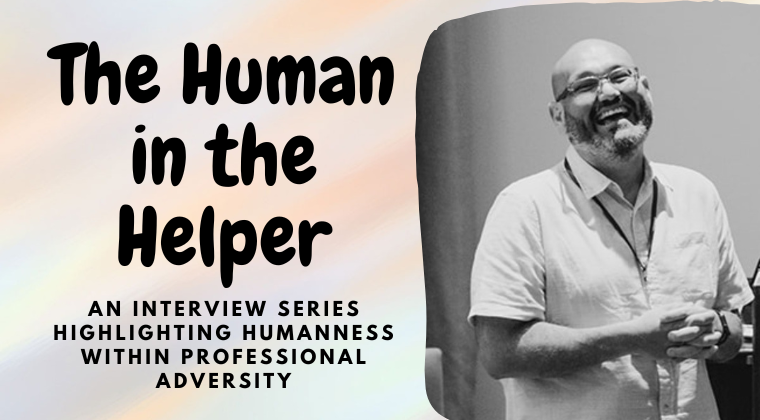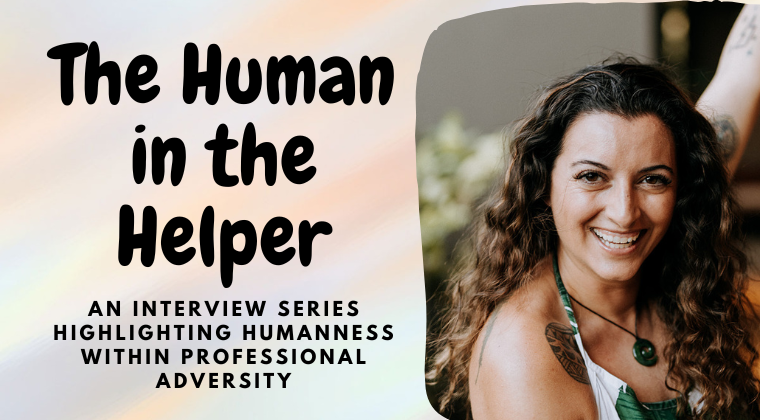Alex loves traveling, his husband, and his fur babies. He’s known within his community as a committed mental health leader, dedicated group practice owner, and compelling TEDx speaker. Most importantly, he embodies a genuineness and passionate energy you don’t often see when working within hardened systems that focus on significant trauma and addiction. Seeing how much he’s accomplished in the past few years, it may surprise you to know he was starting to lose his passion and soulful work to the burden of busyness. “It was consuming me,” Alex shared.
Alex describes an imbalance where work was the top priority. He was fielding calls, putting out metaphorical fires, and always having to check his phone for issues, even while on vacation. “I didn’t look forward to coming home [from vacation]. I was stressed at the thought of coming home.” Alex knew something had to shift, but he felt he was committed to his group practice’s growth and goals for the next few years. His spouse described the agency as Alex’s baby, taking his full attention and energy since it was still in an infancy stage of growth.
“That hurt to hear him say,” Alex said, “but it didn’t cause a pivot.” At least, not yet. Alex had been considering a career adjustment for almost two years before he hit his limit. “I was in Oregon on a ropes course and had dislocated my shoulder,” Alex remembers. He recalled how he noticed he was attempting to talk himself into pushing through and finishing, all while in immense pain. “I asked myself, who do I need to prove myself to? Tapping out is okay.” Then Alex felt a flood of emotions as he realized this urge to keep going and pushing through was part of his experience as a group practice owner. He had finally come to a decision, it was time.
Although his community saw the end result as an announcement to close his agency, Alex disclosed several factors that influenced this pivot away from group practice ownership. “I want my husband to be my top priority. I want to do soulful work again. If I didn’t pivot, I was going to be resentful and hateful of the field.” Alex reflected on how his five domains of self—something he presents on often within his community—were suffering under the experience of too much busyness. “Now I’m paying attention to what feels in alignment with my values.”
Alex shared that although he’s grieving the change, it’s a joyful process to see the meaningful differences in his day to day life. “I get to work and do something I love and spend time with my husband.” Alex doesn’t want to live with regrets, especially as he helps his spouse navigate a recent decline in health. “I’m not going to compromise who I am as myself or for my husband for the profession.” In other words, Alex is embracing a shift towards prioritizing relationships and health over work.
A pivot in practice ownership is something Alex wants to normalize for his colleagues. “You don’t owe anyone any explanations. You don’t owe it to anyone but yourself.” Alex went on to describe that pivoting is a normal experience as priorities in life change. How do you know if you need to pivot? Alex has a suggestion. “Imagine you are on your death bed. Will you be happy with how things are now? Or will you have regrets? You can pivot!” Alex doesn’t want to feel like he has ignore warning bells when things are out of alignment, and he doesn’t want other clinicians to respond this way either. “Notice what you are saying to yourself. To tap out is okay.” In support of balance, Alex plans to continue to speak and consult on burnout and soulful work with other helping professionals. It’s a way he can give back to the profession without burning out, which is something he hopes to inspire in colleagues on their own path of self-discovery as well.
Things happen to us as humans, even as we support our clients as professional helpers. Do you have a story you want to share the mental health community? Email us at croswaitecounselingpllc@gmail.com to learn more about the Human in the Helper Series!




